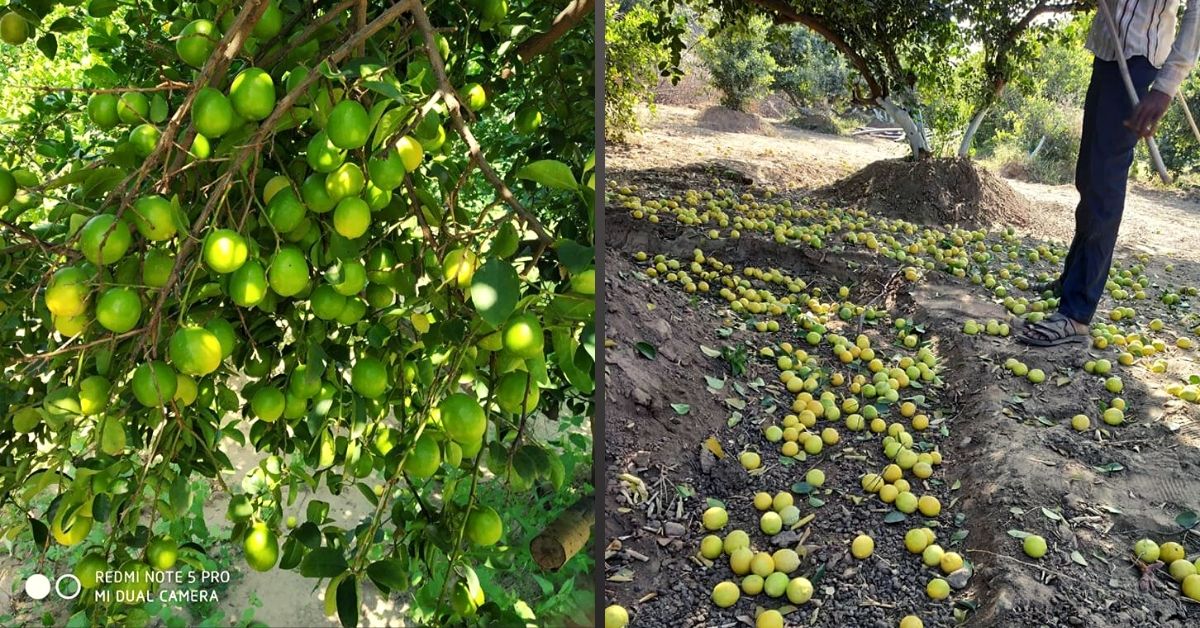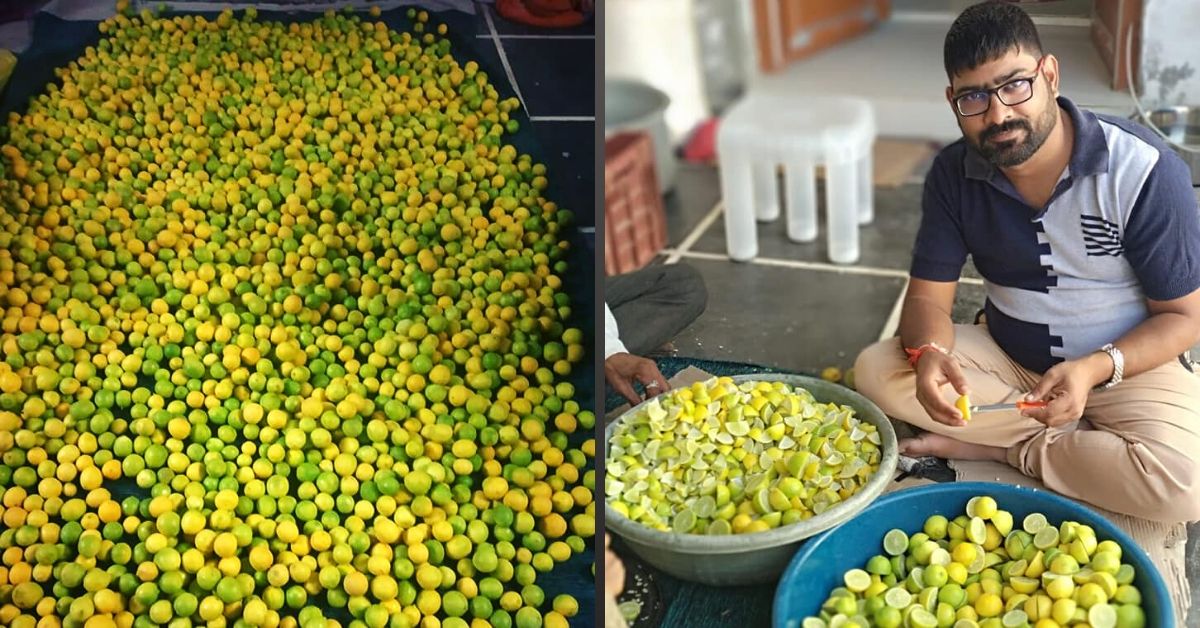“Farming is not rocket science, anyone can do it,” suggests Abhishek Jain, as he narrates his farming journey.
Passionate about eating natural and healthy food? Check out organic seeds here.
“You just have to begin,” he continues. “With time, you will notice that even your kids enjoy this work. Being in the field will keep them connected with nature, enable them to look at things more closely, and help them realise the importance of hard work, ki ann aise hi nahi ugaya jaata.”
Since 2007, Abhishek has been growing organic lemons and guavas on his “tees bhiga zameen,” which loosely translates to 15-17 acres of land, in Sangramgarh, located in Rajasthan’s Bhilwara district.

However, he wasn’t too keen on being a farmer.
After completing his BCom in Beawar, Ajmer, Abhishek tried his hand at a marble business. But his father’s sudden demise shook him out and into the agricultural field.
It may have been difficult, but Abhishek was not one to brood. He took over his deceased father’s work, tending to the lemon and guava trees, planting some of his own.
“Before 2014, I wasn’t very particular about what I was adding to the soil. I also tried growing anaar (pomegranate), but the blind use of chemicals poisoned the plants. Then, I decided to go organic and use elements like natural manure and jeevamrut,” he recalls.
This decision had more than monetary returns for him.
While he has been able to save the variable cost of Rs 2-3 lakh that he would have otherwise spent on dousing the soil with what were harmful chemicals, a more remarkable advantage was the improvement in soil quality.
What does he mean by ‘variable’ cost?
“Insecticides and pesticides are not a constant cost, because they are bought and used according to the diseases acquired by the plant,” replies Abhishek.
He’s also remained committed to growing lemons, making not just the proverbial lemonade but also lemon pickle!
His family always made lemon pickle at home. But once, he served it to a few guests who cherished it and even asked to take some home.
Soon, friends and family began to request for the delectable nimbu ka achaar, and he gave away nearly 50 kgs of it.
In 2016, he started making the pickle commercially, selling between 500-700 kg, every year. A 900 gm bottle is priced at Rs 200, with additional nominal charges for packing and shipping.
“Lemons have changed my life. My average income from 1.75 acres of lemons is Rs 6 lakh, with nearly Rs 1-1.5 lakh as expenditure,” he beams.
A fruit that’s available throughout the year, he informs me that the best time to plant it is in July/August after the first showers of the monsoon.
It’s not very different in the case of guava. “I make about Rs 3.5-4 lakh. For commercial use, both guava and lemon plants give fruits three years after plantation.”
While contracted labourers are hired for the plantation and harvest of guavas, he has hired two permanent farm-hands who help out with other chores on the field.
Lemons, especially the process of pickling, is mostly handled by the family. This includes his mother and wife.
He also has two kids, a six-year-old daughter and a ten-year-old son.
He shares, “They [kids] go to school and are doing well. People think that there is no life in the village, but that’s not true! My wife has come from a city like Surat to live with me in a village in Rajasthan, and she’s living here very happily if I may say so myself. Sure, there may be some gaps with regard to healthcare, but we find ways to manage.”
Lemons are available round the year and always in demand. Of course, there are challenges like unforeseen demand/supply issues or bad weather. But for Abhishek, “these issues are a part of agricultural life, a part of business, so I don’t give them much thought.”
But there are a few things that he does think about—building farmer communities, where they support each other with useful information; and encouraging city dwellers like me to practice terrace farming.
For the former, he has come together with like-minded individuals to form Team Samekit.
It includes farmers, agricultural experts, PhD students, who share information and knowledge through WhatsApp about all topics related to farming, including soil health, crop quality and market fluctuations. So far, they have completed training sessions for 18 groups.
“Urban folks should utilise their terrace and balcony spaces to practice farming and grow simple, everyday vegetables, zeher mukht, for their families and eat,” he concludes.
Also Read: King of Lemons: How the Gondhoraj Lebu Literally Remains True to Its Roots!
To learn more tips on organic farming or order some zesty lemon pickle, drop Abhishek a WhatsApp message on 09982798700.
(Edited by Gayatri Mishra)
Like this story? Or have something to share?
Write to us: contact@thebetterindia.com
Connect with us on Facebook and Twitter.
If you found our stories insightful, informative, or even just enjoyable, we invite you to consider making a voluntary payment to support the work we do at The Better India. Your contribution helps us continue producing quality content that educates, inspires, and drives positive change.
Choose one of the payment options below for your contribution-
By paying for the stories you value, you directly contribute to sustaining our efforts focused on making a difference in the world. Together, let's ensure that impactful stories continue to be told and shared, enriching lives and communities alike.
Thank you for your support. Here are some frequently asked questions you might find helpful to know why you are contributing?

